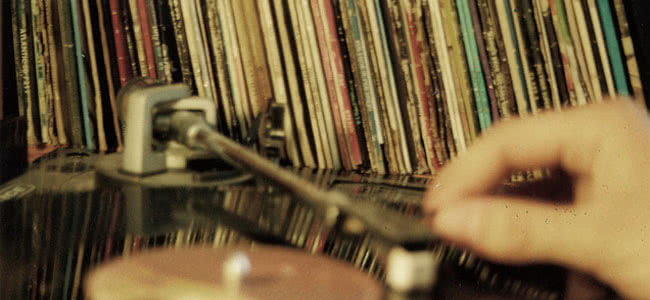You know the warm and fuzzies you get when you’re listening to a song from your childhood?
When a song brings with it the nostalgic soundtrack of your mum cooking a Sunday Roast, or a song on the radio reminds you of the sounds emanating from your dad’s office – but have you ever wondered why you get nostalgic for the tunes your parents spun around the home while you were growing up?
A new study suggests that there might be a scientific reason behind the emotional attachment to music from our youth and especially to popular hits from not only our own generation, but our parents as well, as the Daily Mail reports.
New findings from researchers from Cornell University and the University of California, Santa Cruz demonstrate that our parents musical tastes can shape and influence our own in a phenomenon called the “reminiscence bump”, the ability to remember things from early in life better than more recent events, and music’s uncanny way of reminding us of specific points in time.
“Music transmitted from generation to generation shapes autobiographical memories, preferences and emotional responses – a phenomenon we call cascading ‘reminiscence bumps’,” says Professor Carol Krumhansl. “These new findings point to the impact of music in childhood and likely reflect the prevalence of music in the home environment.”
The research, published in the Psychological Science journal says songs popular from our early 20s seem to have the greatest lasting impact but also the popular music of our parents’ youth, which can evoke equally vivid memories. Why the connection to songs that were big before we were even born? Precisely because that same nostalgic tendency towards music from our 20s is ‘passed down’ to the next generation.
Why the connection to songs that were big before we were even born? Precisely because that same nostalgic tendency towards music from our 20s is ‘passed down’ to the next generation. Which might explain why hearing The Beatles provokes the same response in a child born in the 80s as it does for someone who was a young adult during the height of Beatlemania.
Love Music?
Get your daily dose of metal, rock, indie, pop, and everything else in between.
Prof. Krumhansl, alongside Dr Justin Zupnic of the University of Califronia, Santa Cruz reached their conclusion by asking 62 twenty-something college students to listen to two hits selected from the Billboard charts each year from 1955 to 2009. Researchers asked participants which songs conjured up the strongest feelings – happiness, sadness, energised, or nostalgic – as well as whether they remembered listening to the song by themselves, with parents, or amongst friends.
Prof Krumhansl and Dr Zupnic found that personal memories with songs increased steadily in correlation with the partcipant’s growing age, finding they could recall more recent songs better, but also a drastic bump in recall, recognition, and emotional connection with music popular in the early 1980s when the participants own parents were in their 20s to 30s.
There was also a smaller, but significant ‘reminiscence bump’ for popular music of the 1960s – over two decades before the participants were born. The study speculates that this recall is possibly transmitted through the participants’ grandparents ‘passing down’ their own popular music from their 20s to 30s in the 1960s.
There is the possibility that the music is better recognised because of its legacy or quality (think of the ‘back in my day…’ argument from the Baby Boomers generation), and Prof Krumhansl and Dr Zupnic are extending their research into a web-based survey to explore these possibilities further, including a century of popular hits, with the hope that a broader age demographic will participate.
“It will be fascinating to see if we can trace inter-generational influences back through more generations, better understand the ‘sixties’ (reminiscence) bump and look for effects of the vast changes in music technology that have occurred over the last century,” says Professor Krumhansl.

































